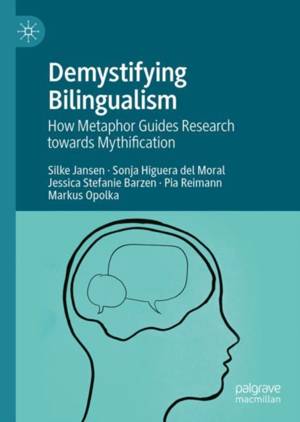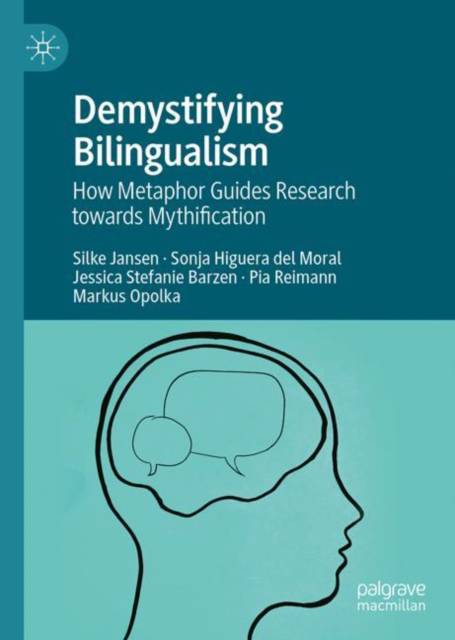
- Afhalen na 1 uur in een winkel met voorraad
- Gratis thuislevering in België vanaf € 30
- Ruim aanbod met 7 miljoen producten
- Afhalen na 1 uur in een winkel met voorraad
- Gratis thuislevering in België vanaf € 30
- Ruim aanbod met 7 miljoen producten
Demystifying Bilingualism
How Metaphor Guides Research Towards Mythification
Silke Jansen, Sonja Higuera del Moral, Jessica Stefanie Barzen, Pia Reimann, Markus OpolkaOmschrijving
This book analyses changing views on bilingualism in Cognitive Psychology and explores their socio-cultural embeddedness. It offers a new, innovative perspective on the debate on possible cognitive (dis)advantages in bilinguals, arguing that it is biased by popular "language myths", which often manifest themselves in the form of metaphors. Since its beginnings, Cognitive Psychology has consistently modelled the coexistence between languages in the brain using metaphors of struggle, conflict and competition. However, an ideological shift from nationalist and monolingual ideologies to the celebration of bilingualism under multicultural and neoliberal ideologies in the course of the 20th century fostered opposing interpretations of language coexistence in the brain and its effects on bilinguals at different moments in time. This book will be of interest to students and scholars of Cognitive Psychology, Psycholinguistics, Multilingualism and Applied Linguistics, Cognitive andComputational Linguistics, and Critical Metaphor Analysis.
Specificaties
Betrokkenen
- Auteur(s):
- Uitgeverij:
Inhoud
- Aantal bladzijden:
- 376
- Taal:
- Engels
Eigenschappen
- Productcode (EAN):
- 9783030870621
- Verschijningsdatum:
- 2/12/2021
- Uitvoering:
- Hardcover
- Formaat:
- Genaaid
- Afmetingen:
- 148 mm x 210 mm
- Gewicht:
- 657 g

Alleen bij Standaard Boekhandel
Beoordelingen
We publiceren alleen reviews die voldoen aan de voorwaarden voor reviews. Bekijk onze voorwaarden voor reviews.











